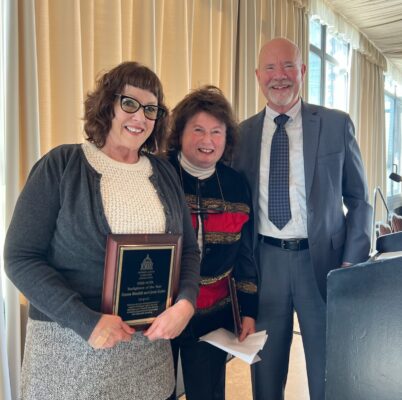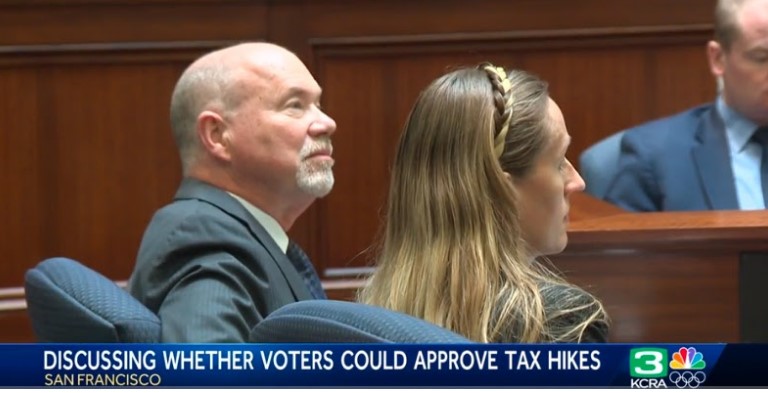By Jon Coupal – October 7, 2024
As the November election gets closer, there are increasing complaints from voters over local governments openly supporting tax hikes. While local government officials are free to support or oppose ballot measures, they may not authorize the use of public funds on any election matter – be it for or against a candidate or initiative.
Despite the illegality of taxpayer funded advocacy, officials have an incentive to try it anyway because the potential ROI (the return on investment) of millions – if not billions – in new tax revenue would dwarf any fine or other punishment they might face.
That must change. The same First Amendment rights that allow individuals to speak on ballot issues also prohibits the use of taxpayer funds for political advocacy. In 1976, the California Supreme Court ruled, “The use of the public treasury to mount an election campaign which attempts to influence the resolution of issues which our Constitution leaves to the ‘free election’ of the people (see Const., art. II, § 2) … presents a serious threat to the integrity of the electoral process.” Stanson v. Mott (1976) 17 Cal.3d 206, 218.
Such a “serious threat” deserves a response of imposing real penalties on bad actors including large fines, personal liability on the part of those authorizing those expenditures and, yes, even jail time.
The agency charged with policing campaign finance violations is the Fair Political Practices Commission,which can be an aggressive enforcer against these expenditures. For example, the FPPC imposed a $1.3 million fine against Los Angeles County for using taxpayer funds for political ads touting Measure H, a sales tax increase on the ballot in 2017. It was the largest fine ever imposed by the FPPC.
The fine against L.A. County was precipitated by a complaint filed by the Howard Jarvis Taxpayers Association. It was hoped that the fine levied by FPPC would serve as a warning to government entities in California that they must obey all state laws and regulations relating to both reporting campaign expenditures as well as providing disclosures on campaign advertising. And, to some extent, it has.
However, as noted earlier, the ROI for violations can overcome the deterrent effect of a large fine. Sure, a $1.3 million dollar fine imposed on the County of Los Angeles seems big. But because the Measure H tax has generated more than $2.4 billion since its passage, L.A.politicians could easily conclude, “it was worth it.”
That’s why stiffer penalties are needed to ensure that no amount of ROI would lead a politician to conclude “it was worth it.”
So, what can voters do if they see a taxpayer-funded political ad that crosses the line from “informational” material to outright “advocacy?”
At a minimum, voters may forward a copy or screen shot of the questionable ad and send it directly to the FPPC’s “ad-watch” program, where citizens can report government-financed communications that they suspect cross the line into political advocacy. According to the FPPC’s website, its rules on reporting and disclosures “also apply to communications from public entities when their activity meets the thresholds to qualify as a ‘committee.’ This happens when a state or local governmental agency pays public moneys for a communication to the public and the communication expressly advocates the election or defeat of a clearly identified candidate or the qualification, passage, or defeat of a clearly identified measure, or, taken as a whole and in context, unambiguously urges a particular result in an election.”
In addition to FPPC engagement, voters have alternative remedies. While the FPPC’s jurisdiction is limited to enforcing the disclosure of campaign spending and the timely reporting of those expenditures, the courts – both federal and state – are not so limited. Taxpayers have the right to proceed directly to Superior Court for claims asserted under the First Amendment of both the U.S. and California Constitutions.
Finally, voters can always contact the Howard Jarvis Taxpayers Association which has created a Public Integrity Project under the auspices of HJTA’s affiliated Foundation. HJTF’s Public Integrity Project has already proven to be an additional enforcement tool against illegal expenditures of public funds and other violations of law that hurt taxpayers and voters.
It’s bad enough when local politicians work to raise taxes when Californians are already paying one of the highest tax burdens in America. But it’s adding insult to injury to have those efforts supported with the same public funds that could be spent on legitimate government services.
Jon Coupal is president of the Howard Jarvis Taxpayers Association.



